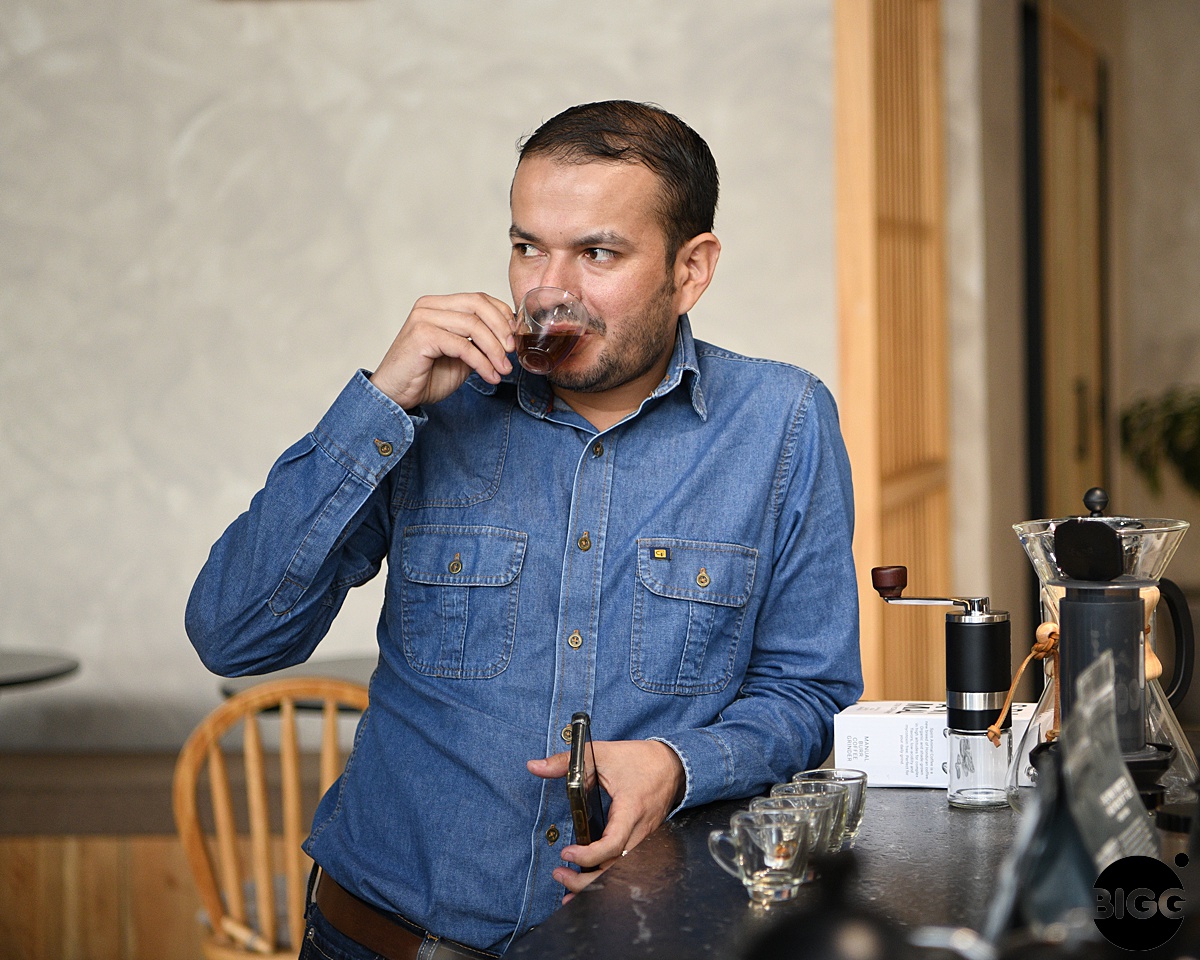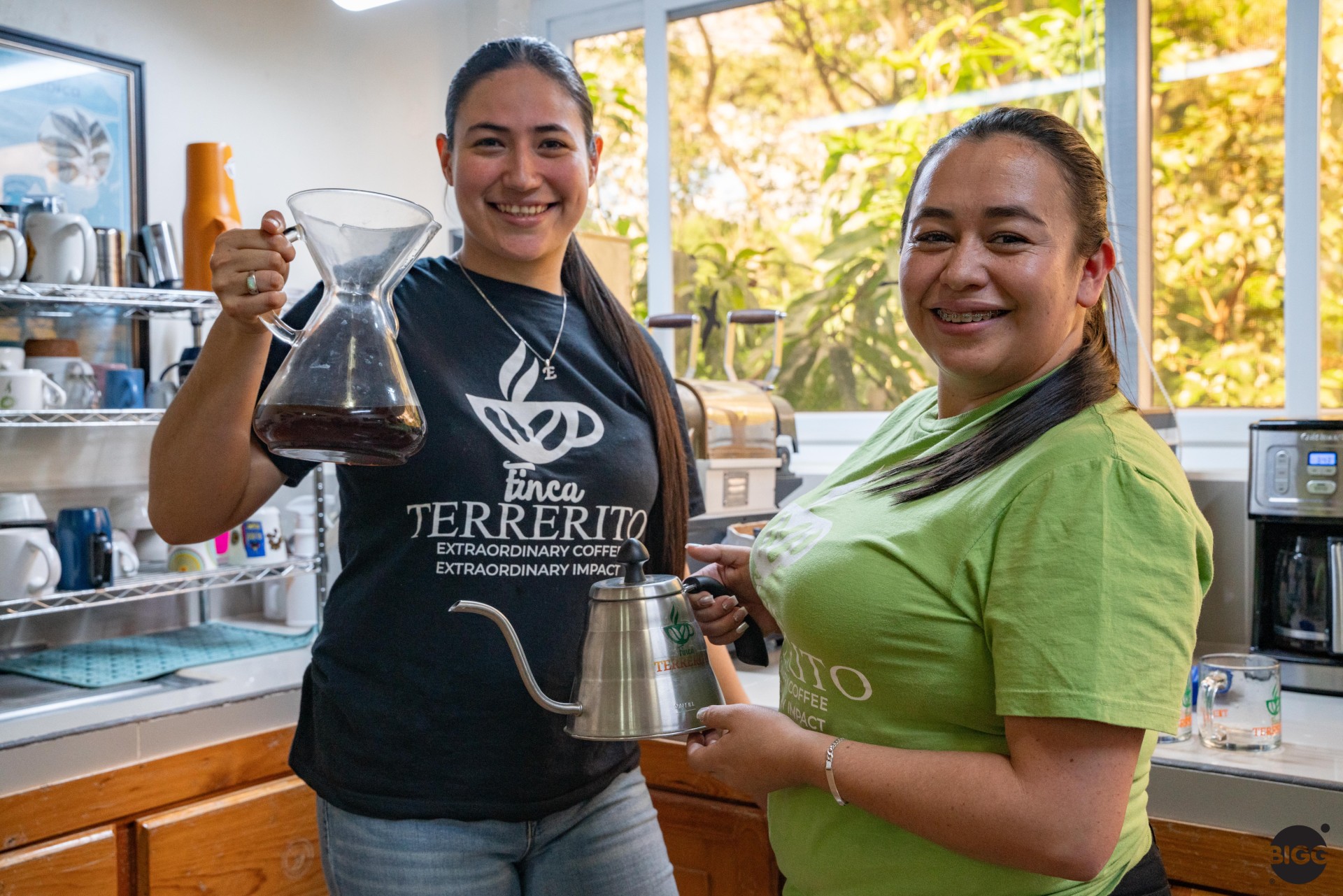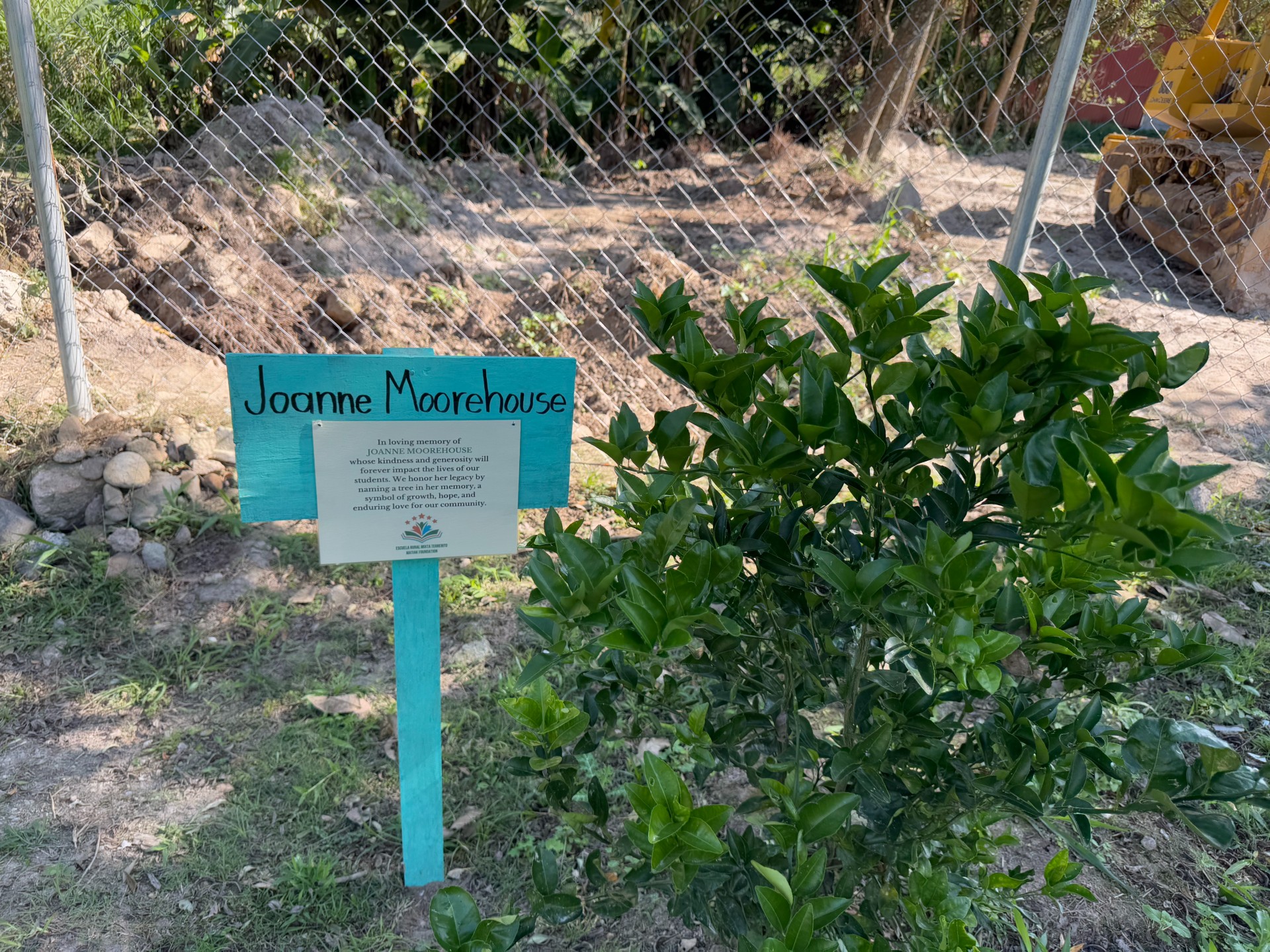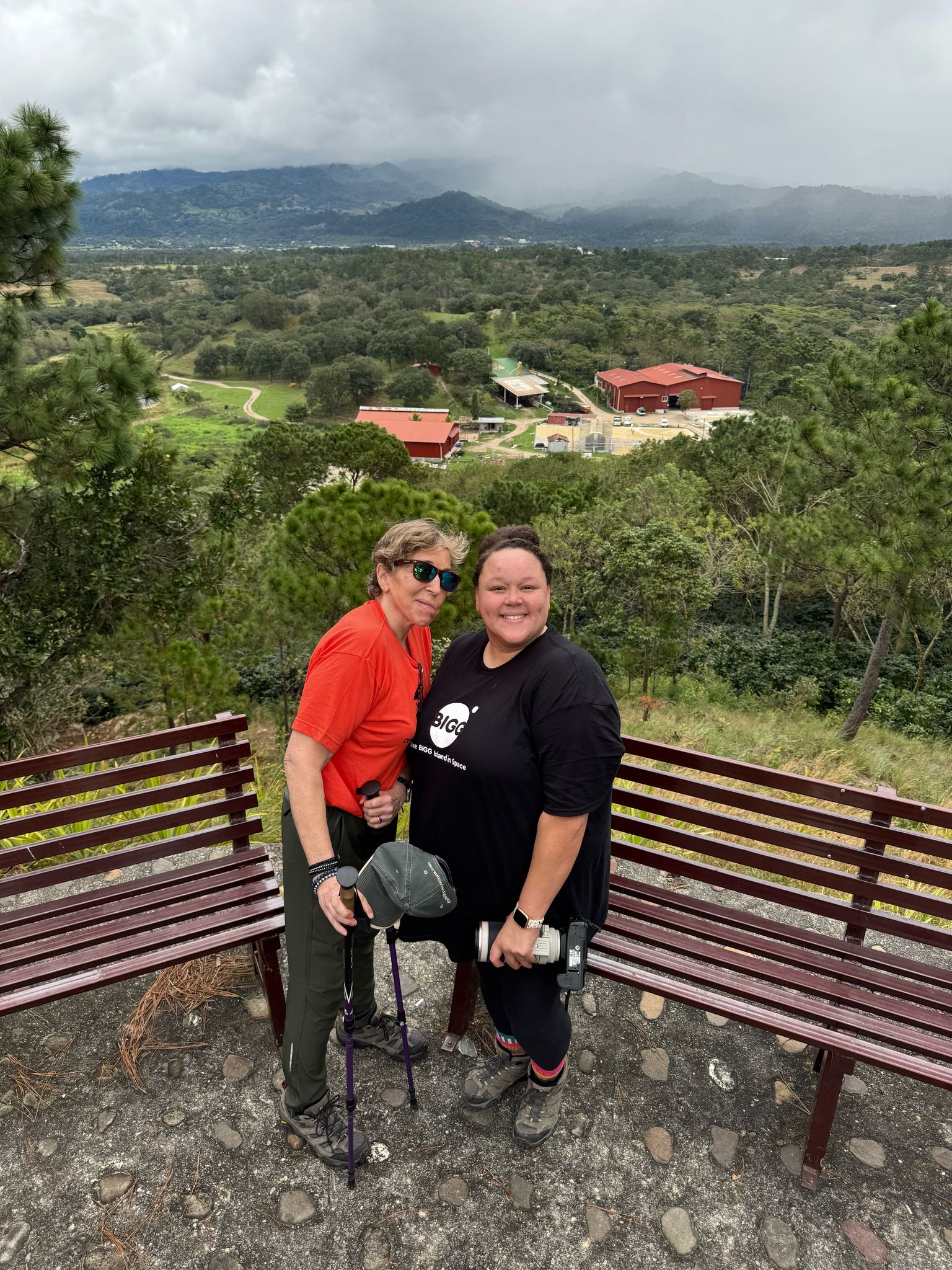By Michelle Fish
1600M above sea level, in a lush, tropical forest, Juan Manuel Villeda is making his stand. A third-generation coffee producer, he spends every moment he can working his three Manzana (roughly three acre) coffee field planted up the steep slopes of the mountain. He is chasing quality, not quantity. A batch of his 2021 crop scored a Q-Grade of 88, which makes it as rare and as valuable as, say, Waygu Beef on a steak house menu.
Compared to many of his coffee farming neighbors, he is lucky. He both knows and understands the quality of the coffee he is producing, and he has been able to secure a buyer for his best beans. Although “lucky” is a funny way to describe a journey that has been defined by countless hours of hard work, and an entrepreneurial leap of faith that he would be able to find a buyer that would pay him a fair price.
It wasn’t supposed to be this way. He wasn’t supposed to be in coffee at all.
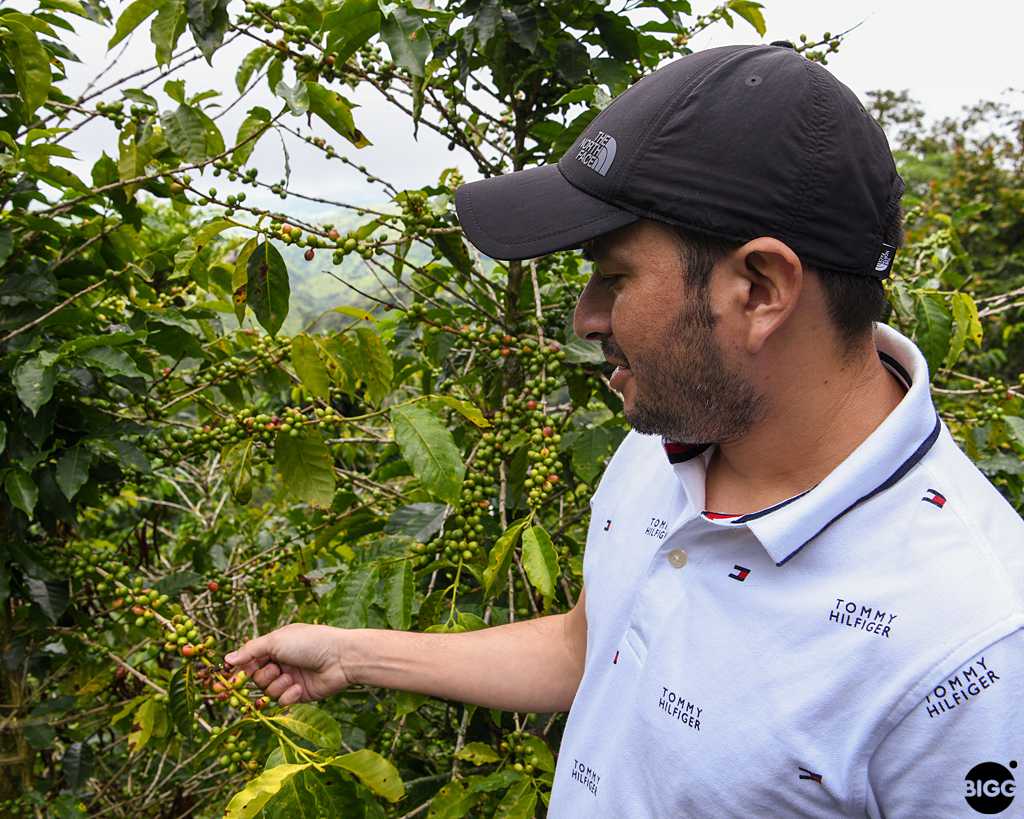
Better for the Next Generation
His grandfather had bought the land in the remote, mountainous region of Copan at the beginning of the 1970s. In those early days of the farm, his grandfather struggled with the challenging terrain and the vagaries of the coffee market. It took him more than 20 years to build a thriving coffee farm, which he left to Juan’s father, and his father’s siblings, in the 1990s.
It was a booming time to be a coffee grower, and his father’s farm rode the wave of relative prosperity. In spite of the fact that his dad never received more than a 6th grade education, he was able to ensure that Juan and his three siblings all received advanced degrees from the best Universities.
Juan earned a Masters Degree in Management, and moved to San Pedro Sula where he got a job sourcing produce for the largest local grocery store chain. But his love of the land and reverence for the coffee that grows there never left him.
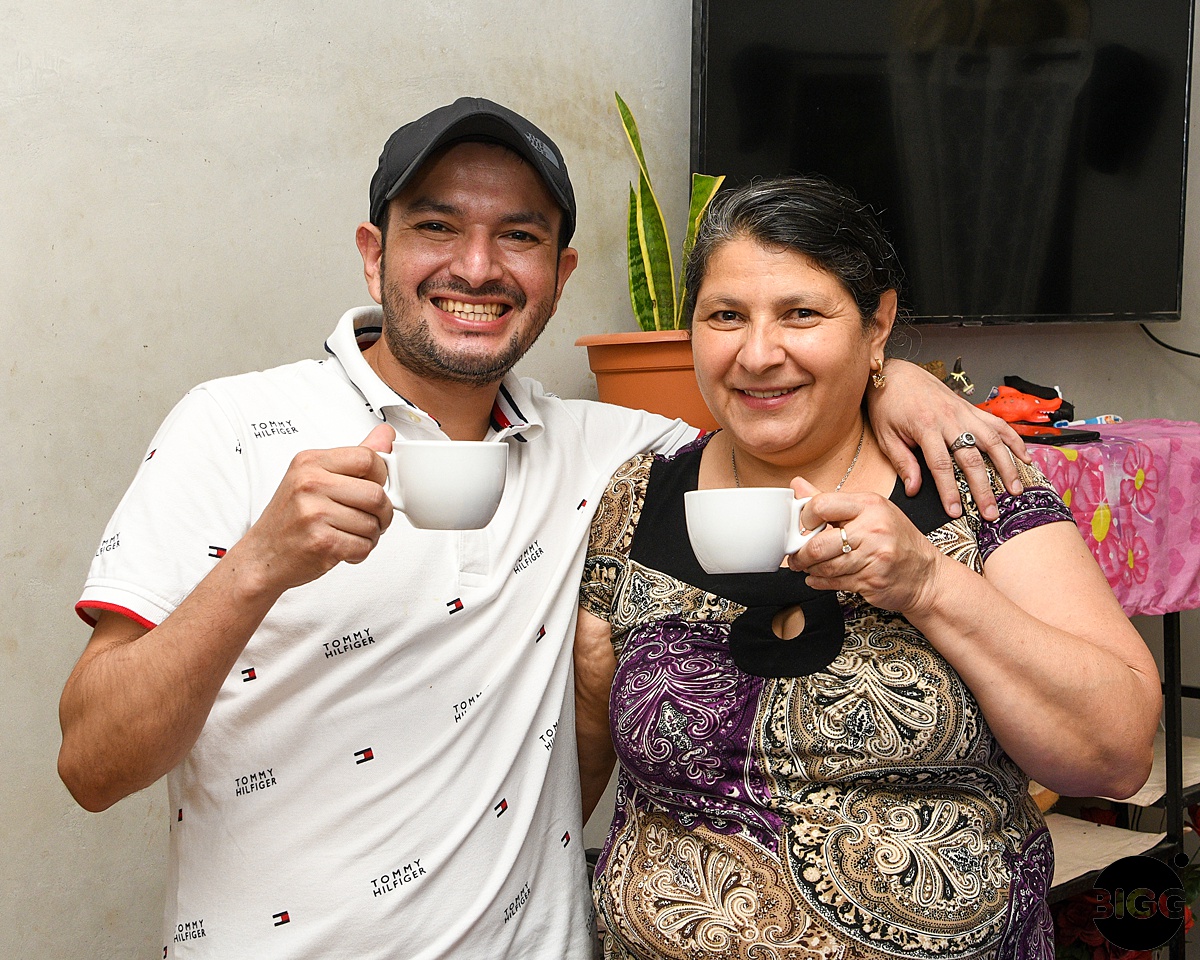
Floridalma
By the time Juan came of age, the bottom had fallen out of the coffee market. The twin challenges of climate change and the way coffee is traded on the commodities marketplace had squeezed the last bit of margin out of coffee production. And the work is brutally hard.
Most of Juan’s family that had been involved with producing coffee started doing other things. Some turned to livestock. Some sold the land. But not Juan’s Aunt Floridalma.
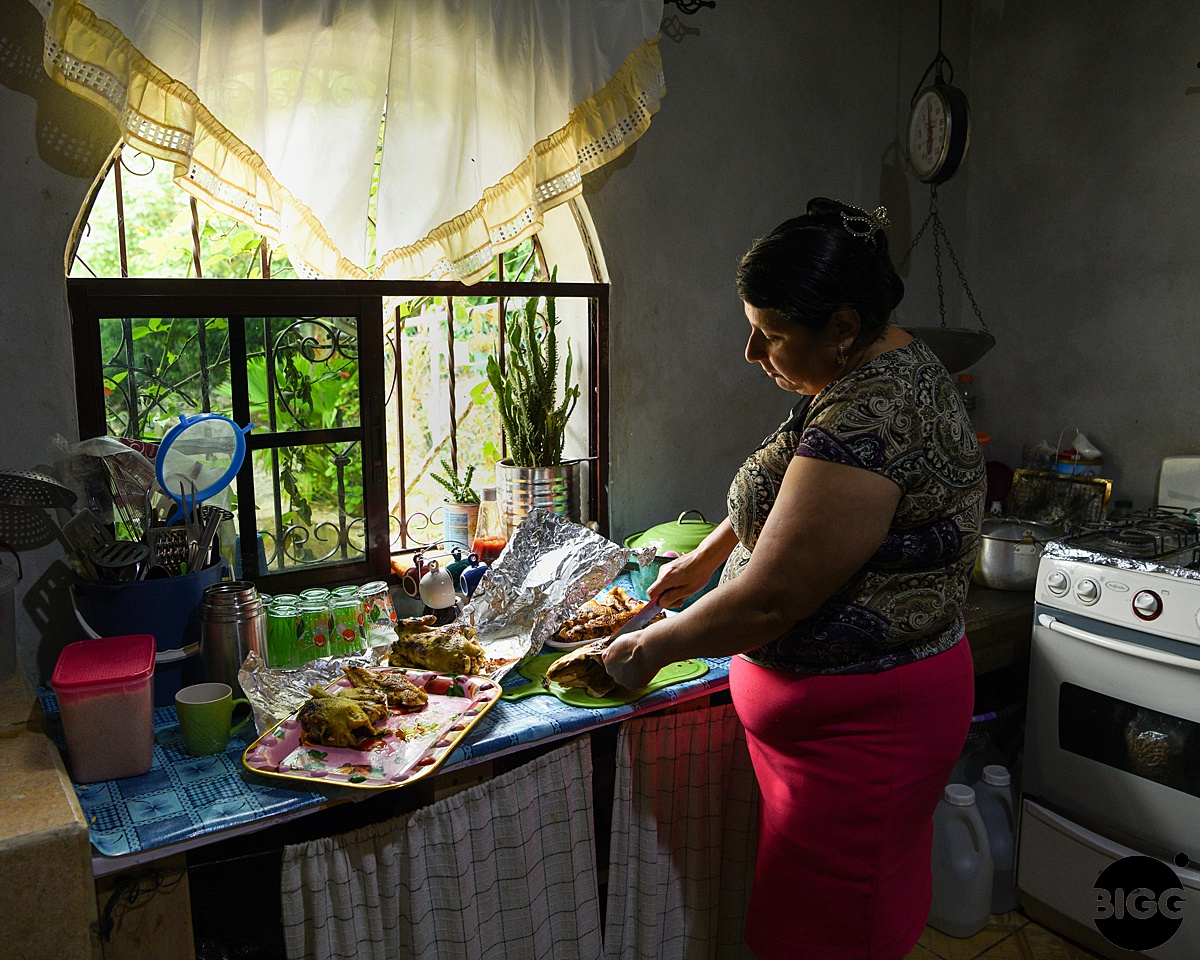
On the day we spent in Copan with Juan and our friends from Spirit Animal Coffee, we were invited to Floridalma’s house for lunch. We were welcomed in with a bustling warmth that felt like we were old friends already. The walls are decorated with photographs and momentos of her family and her proudest achievements. And the house was filled with the smells of simmering gallina, the Spanish word for hen. She raises the chickens herself, and presides over the several days long process of preparing the chicken and making the rich broth for the Caldo, farm chicken soup, like a maestro.
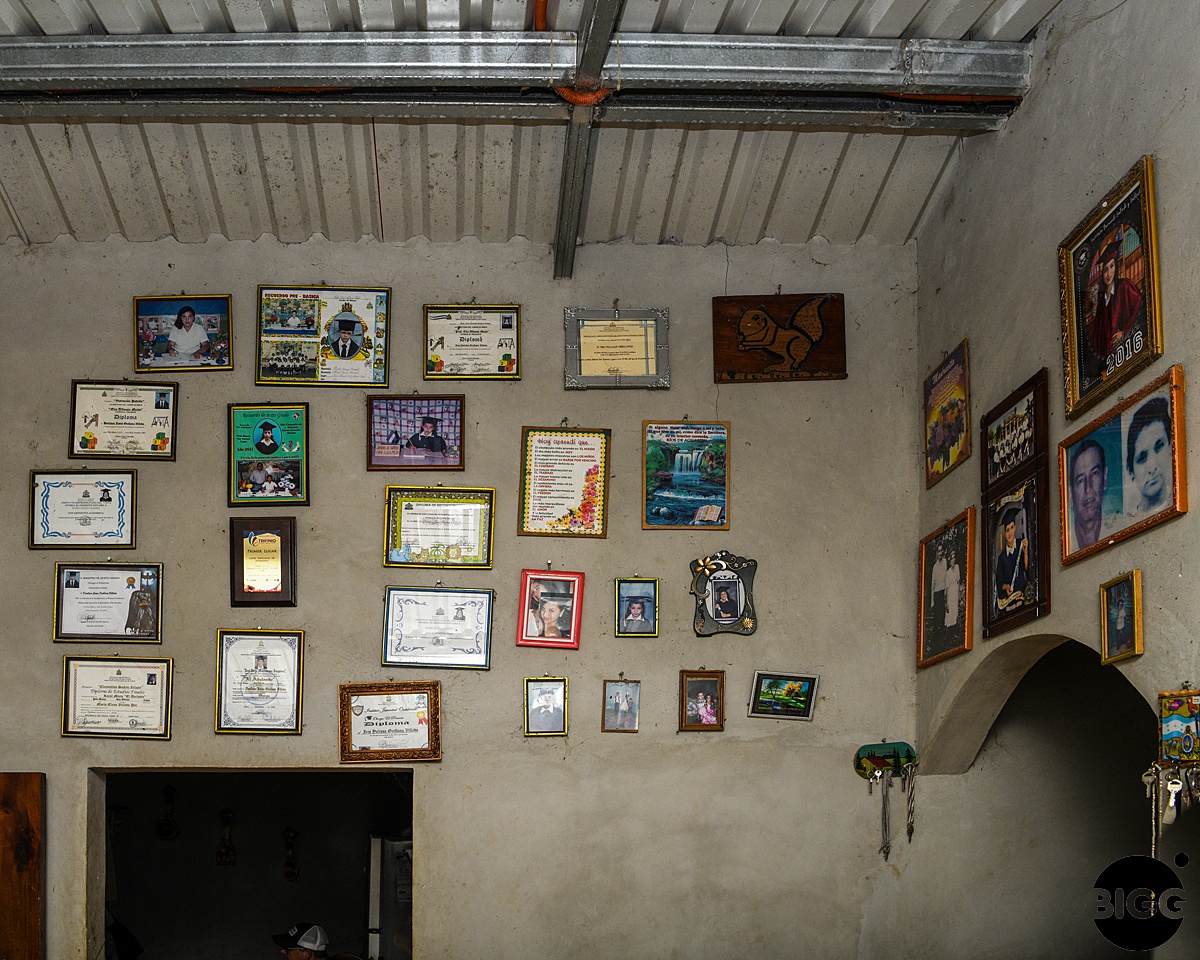
Her name, Floridalma, translates loosely into “Flower of the Soul,” and she is as much a force of nature and as big a spirit as her name might suggest. Her coffee farm is a 45 minute walk up a steep mountain from her home. She and her son, with some help from her neighbors and others in the community, work the fields, pick the beans and carry them back to her house for processing. It is arduous work. So why does she do it?
Scoring a 90
The short answer is that she knows what she has. In 2018, she entered her coffee into the Cup of Excellence Award in Honduras. And her coffee scored a 90. That is considered “Presidential Coffee” – the very best of the best.
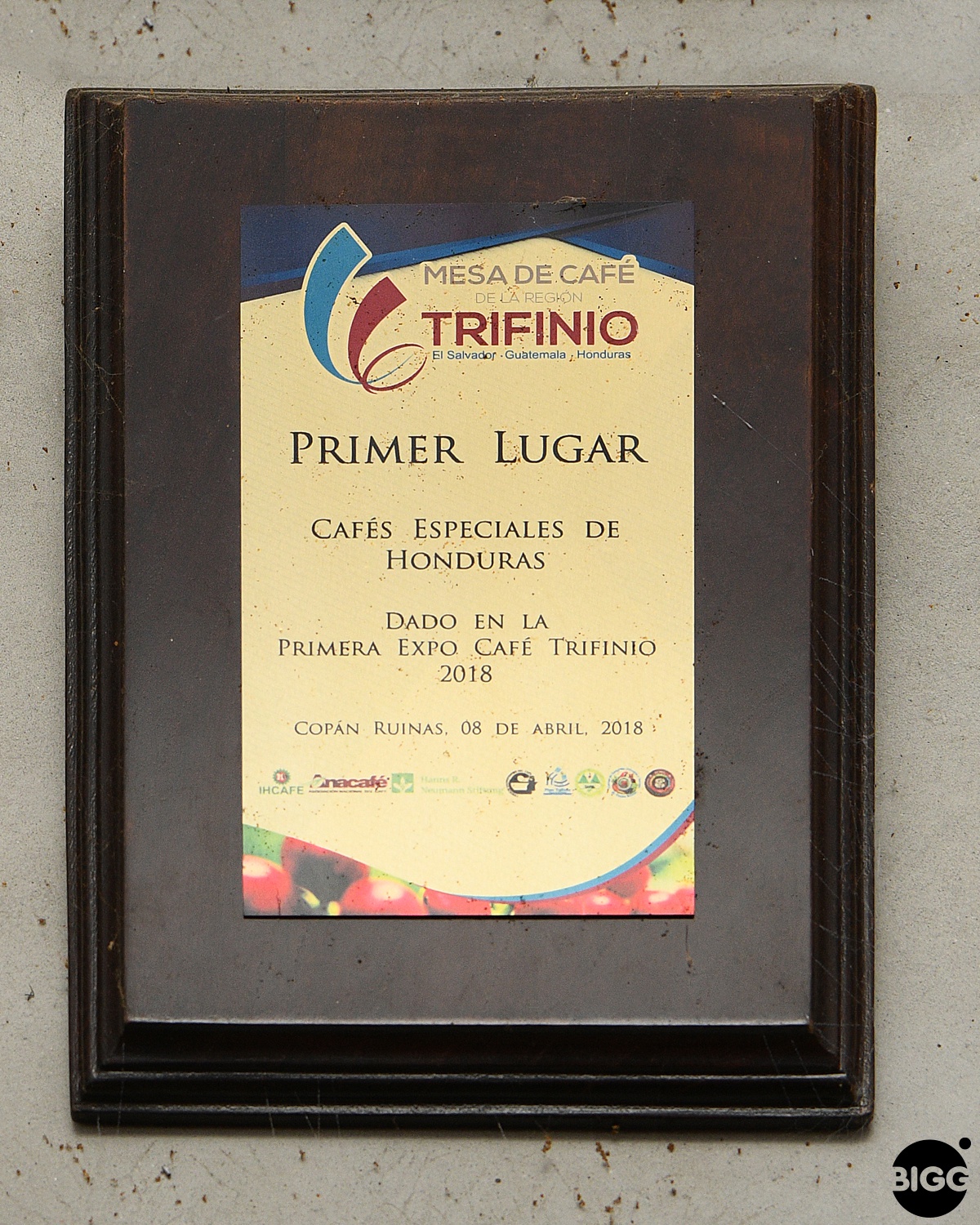
She and Juan Manuel have teamed up, pooling their energies and the crops from their farms, so that they might have access to a larger marketplace. Floridalma supervises the agronomy, and Juan Manuel is responsible for selling the coffee. Thanks to their partnership with Paul and Kathya from Spirit Animal, the premium they receive on their very best beans is helping to stabilize their production.
The Big Why
But that’s still a lot of labor for not much return. So why are they both so committed to coffee farming? We asked Juan Manuel that question when we first met him at the Spirit Animal Coffee Shop in San Pedro Sula.
For him, it’s partly about honoring the family history and traditions. And partly, a deep love of the community and the land where he was born and raised. But the biggest part of his and his Aunt’s “why” has to do with people.[vc_gallery type=”image_grid” images=”6063,6064,6065,6066″ image_grid_loading=”default” layout=”4″ item_spacing=”default” gallery_style=”7″ load_in_animation=”none”]On our day in Copan, Juan Manuel took us to two of the small communities in their region. Many of these families have their own very small farms, where they might supplement what they make on a few dozen coffee bushes with growing grain, corn and beans. They also rely on the additional wages they earn working on Juan and Floridalma’s land. Their histories are intimately intertwined with his family’s history in coffee. And he cares deeply about their welfare.
The poverty in these rural mountain communities is extreme. You can feel it, and you can see it. Tin roofed shacks, hungry children, lack of access to medical care. The effects of mass migration are every where, too. Children living with extended families while their parents seek work, almost always through illegal emigration to the United States.[vc_gallery type=”image_grid” images=”6068,6070,6073,6077″ image_grid_loading=”default” layout=”4″ item_spacing=”default” gallery_style=”7″ load_in_animation=”none”]
Engine of Change
But Juan Manuel’s vision is that coffee can be the engine that changes that. He wants his legacy to be that future generations get a better starting point in life. To that end, he pays fair wages, higher than the national standard. And he works hard to ensure that the people who work in his fields have access to medical care.
They are committed to health of the planet as well, using only natural processes and methods on their farm.
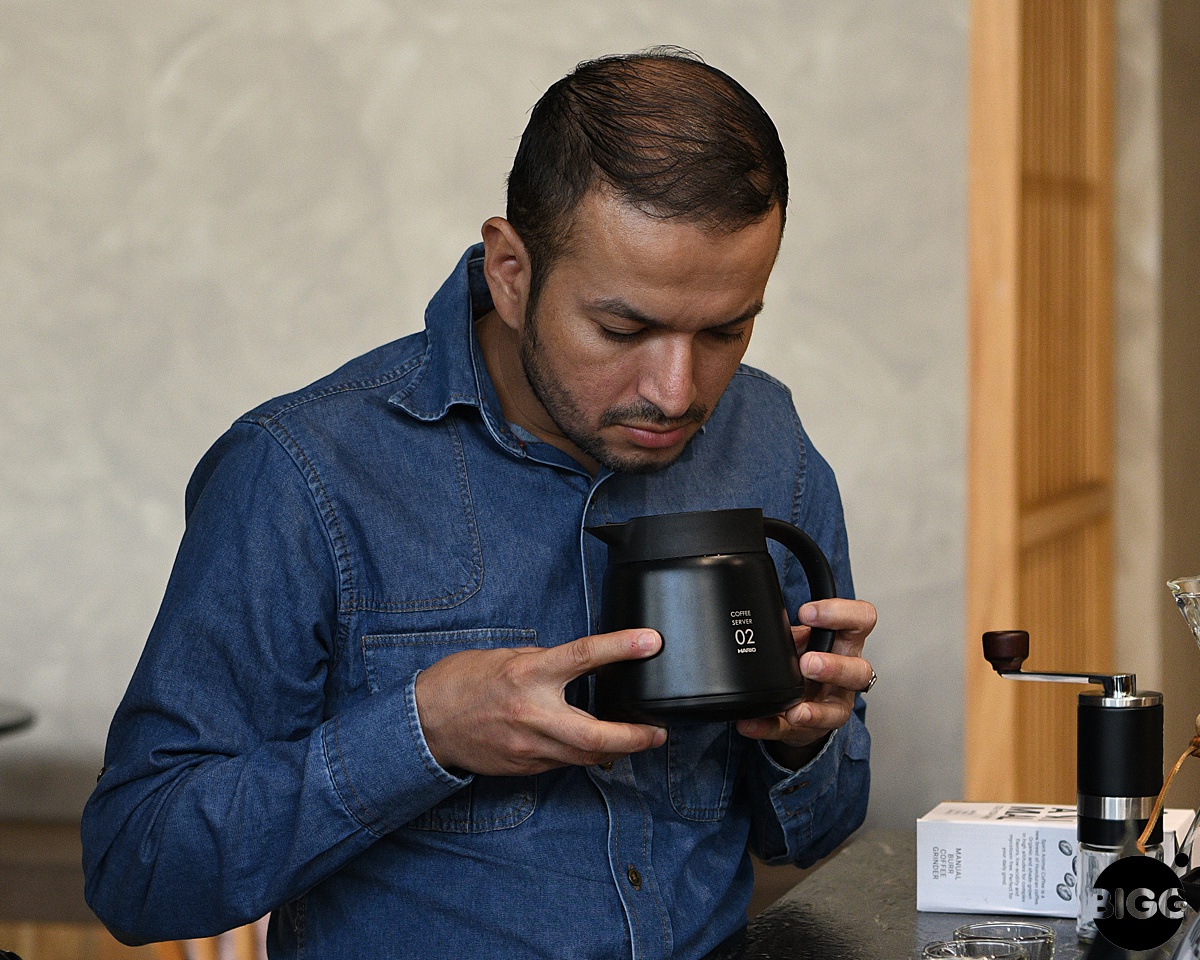
He has a lot of work yet to do to rejuvenate his coffee fields and maximize their full potential. But he’s doggedly determined to get there. He has the relationship with Spirit Animal Coffee to support him.
Now, he just needs to find a buyer for the balance of his coffee that will pay a fair price.

